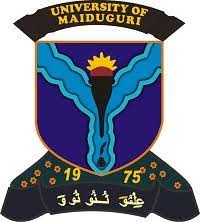 University of Maiduguri
University of Maiduguri

University of Maiduguri
Overview
Sector |
Education, Health |
Country |
Nigeria |
SDG |
01 - No Poverty, 02 - Zero Hunger, 03 - Good Health and Well-being, 04 - Quality Education, 05 - Gender Equality, 06 - Clean Water and Sanitation, 08 - Decent Work and Economic Growth, 13 - Climate Action, 16 - Peace and Justice Strong Institutions, 17 - Partnerships for the Goals |
Organization Type |
Academia / Think Tank |
URL |
www.unimaid.edu.ng/ |
Description
Similar Organizations
| Name | Sector | Country | |
|---|---|---|---|
Unitaid |
Health | Switzerland | View Details |
United Nations Capital Development Fund (UNCDF) Bangladesh |
Agriculture, Food and Rural Development, Development Cooperation, Disaster Risk Reduction, Gender Equality and Empowerment of Women, Health, Humanitarian Emergencies, Industrial Development, Migration, Natural Resource Management, Private Sector Development, Renewable Energy, Science, Technology & Innovation, Trade | Bangladesh | View Details |
Asabe Shehu Yar'adua Foundation (ASYARFS) |
Agriculture, Food and Rural Development, Child Development, Climate Change, Development Cooperation, Disaster Risk Reduction, Education, Gender Equality and Empowerment of Women, Health, Humanitarian Emergencies, Intellectual Property and Patent, Media, Migration, Natural Resource Management, Peace and Development, Population, Procurement, Renewable Energy, Reproductive Health, SIDS Accelerated Modalities of Action Pathway/ SAMOA Pathway., Sustainability and Environment, Transport and Aviation, Volunteerism, Water, Youth | United States of America | View Details |
United Nations Population Fund (UNFPA) |
Child Development, Gender Equality and Empowerment of Women, Health | United States of America | View Details |
Directorate General of Family Welfare, MCH & Immunization, Government of Jammu & Kashmir |
Health | India | View Details |